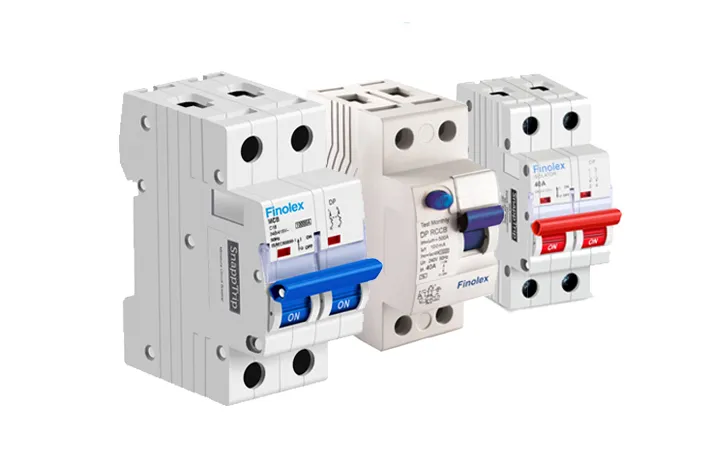Electrical and Galvanic Isolators: Features and Applications
Isolators are crucial devices used in electrical systems to ensure safe and efficient communication of power. Also, they play a vital role in preventing electrical accidents and protecting sensitive equipment. This blog post will delve into isolators, discussing their types features, benefits, applications, and the factors influencing their prices.
Types of Isolators

Electrical Isolators

Galvanic Isolators
Electrical Isolators:
Electrical isolators, also known as electrical disconnect switches or isolation switches, are devices employed to disconnect electrical circuits from the power source. They provide a physical break in the circuit, effectively isolating the electrical equipment from the power supply. Electrical isolators are typically installed in series with the circuit and are designed to handle high voltage and current levels.
Features
- High Voltage and Current Ratings: Electrical isolators are built to handle high voltage and current levels, ensuring safe disconnection of electrical circuits.
- Robust Construction:They are constructed with durable materials to withstand harsh environmental conditions and provide long-lasting performance.
- Visible On/Off Position: They often feature a visual on/off position to c indicate the status of the circuit.
- Manual Operation: They are manually operated devices, allowing users to control the disconnection and reconnection of electrical circuits.
- Insulation Resistance: They offer high insulation resistance to prevent leakage currents and maintain electrical safety.
- Mechanical Interlocking: Some electrical isolators have automatic interlocking mechanisms to ensure that they cannot be operated while the circuit is live, preventing accidental energization.
Applications:
- Electrical Maintenance: Electrical isolators are commonly used in maintenance activities to safely disconnect equipment from the power supply for repair, inspection, or replacement.
- Electrical Safety: They are crucial for isolating faulty equipment or circuits to protect personnel from electric shock and prevent damage to other components.
- Switchgear Systems: They are an integral part of switchgear systems, where they are used for circuit isolation and control.
- Power Distribution:They are employed in power distribution systems to isolate network sections during maintenance or in emergencies.
- Industrial Applications:Electrical isolators are widely used in various industrial applications, including manufacturing plants, refineries, and processing facilities.
Galvanic Isolators:
Features
- Galvanic Current Blocking: Galvanic isolators are designed to stop the flow of galvanic current between connected metal components, preventing galvanic corrosion.
- Compact Size: They are compact and easy to install, making them suitable for various applications with space constraints.
- Low Voltage Drop: They offer low voltage drops to ensure efficient power transmission while always providing effective galvanic isolation.
- Reverse Polarity Protection: Many isolators have built-in protection against reverse polarity connections, safeguarding the electrical system.
- LED Indicators: Some galvanic isolators feature LED indicators to provide visual confirmation of proper operation and galvanic isolation status.
- Marine Applications: Galvanic isolators are extensively used in boats and ships to prevent galvanic corrosion between different metals in the vessel’s electrical and metal systems.
- Offshore Structures: They are utilized in offshore platforms and structures, protecting metal components exposed to seawater and preventing corrosion.
- Harsh Environments: Galvanic isolators find applications in any environment where dissimilar metals are present, such as coastal areas, chemical plants, and wastewater treatment plants.
- Telecommunication Systems: They are used in telecommunication systems to prevent galvanic corrosion in grounding systems and protect sensitive electronic equipment.
- Industrial Settings: Galvanic isolators are also employed in industrial environments, such as oil and gas installations and power plants, to mitigate the risk
Common Features of Isolators
- High Electrical Isolation
- Robust Construction
- Current Rating
- Voltage Rating
- Insulation Resistance
- Mechanical Interlocking
Benefits of Using Isolators
- Enhanced Safety
- Protection Against Electrical Accidents
- Equipment Isolation for Maintenance
- Noise Reduction
- Surge Protection
Applications of Isolators
- Power Distribution Systems
- Industrial Machinery
- Renewable Energy Systems
- Medical Equipment
- Telecommunications
- Audio/Visual Systems
Factors Influencing Isolator Prices
- Type and Complexity of Isolator
- Current and Voltage Ratings
- Quality and Materials Used
- Brand Reputation
- Market Demand and Competition
- Additional Features (e.g., Surge Protection, Interlocking
Conclusion
Isolators are indispensable components in electrical systems, ensuring safety and efficiency. Electrical isolators and galvanic isolators both serve vital roles in isolating electrical circuits. However, they differ in their specific applications. So, understanding the features, benefits, and applications of isolators helps users choose the appropriate type for their specific needs. Also, the price of isolators varies depending on several factors such as type, current and voltage ratings, quality, and additional features. Therefore, it’s essential to consider these factors while making purchasing decisions. Thus, ensuring optimal performance and long-term reliability. Whether in power distribution, industrial machinery, or renewable energy systems, isolators play a crucial role in safeguarding equipment and personnel. Thus, making them an integral part of modern electrical systems.

